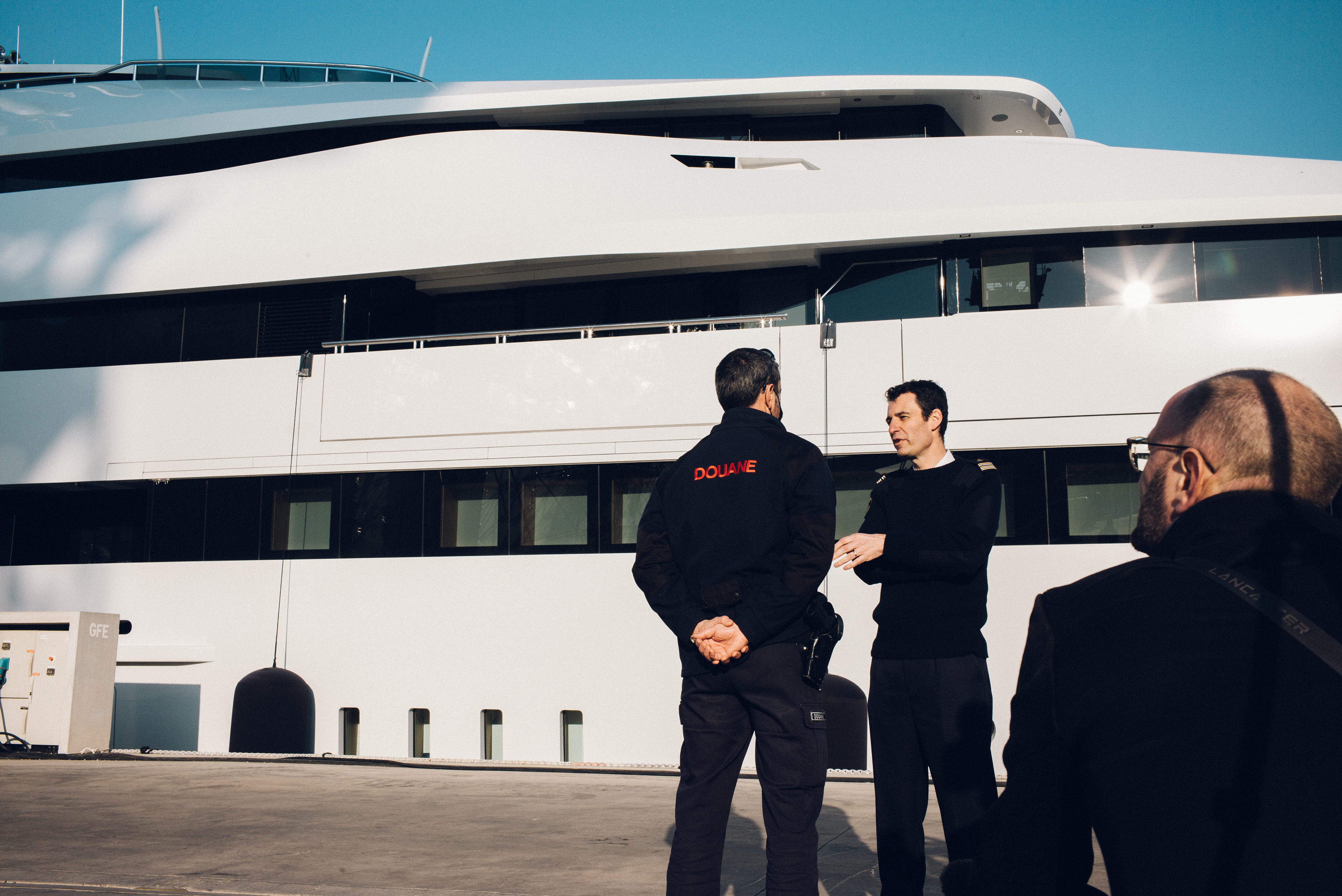That’s Not My Yacht: Here’s How Russian Oligarchs Are Hiding $100 Million Boats

Credit to Author: Greg Walters| Date: Fri, 11 Mar 2022 13:54:18 GMT
A week after Russian forces invaded Ukraine, French officials trumpeted the freezing of a $120 million ultra-luxurious yacht, which they said belonged to a sanctioned Kremlin insider.
But there was a snag. The Monaco-based company that manages the yacht insisted the Kremlin insider in question, oil tycoon Igor Sechin, doesn’t own the vessel nor Kazimo, the company that it says owns the ship.
“The yacht is categorically not owned by Mr. Sechin, nor is he in any way connected to Kazimo (either directly or indirectly),” a spokesperson for Imperial Yachts wrote in an email to VICE News. “Kazimo’s lawyers are in active discussion with French customs.”
So it goes in the global hunt for Russian oligarchs’ mega-yachts, which Western countries announced with great fanfare after Russia invaded Ukraine last month. Locating these enormous, sea-going monstrosities is the easy part: They loom on the horizon like apartment buildings that have fallen over and somehow managed to float. The fanciest among them have multiple helipads, interior swimming pools that can turn into dance floors, elevators, gyms, and rooms for dozens of guests.
But proving who owns them is another matter.
Mega-yachts, private jets, and penthouses owned by ultra-wealthy individuals are often held through shell companies, which can obscure the identity of the real owner. Shady individuals, or those with reason to fear their assets could be seized, can layer multiple shell companies on top of one other in separate offshore havens to create a legal maze for investigators to sort through.
For the moment, whenever Western officials announce action against a luxury property owned by a sanctioned Russian individual, the reaction from the wealthy Russian in question has generally been silence—creating a haze of uncertainty about whether officials have even got the right vessel.
“Life would be much simpler if someone like Igor Sechin would just own everything in own his name, and put his picture on the side of his boat, but that’s not the world we live in,” said Adam Smith, who served in the Obama Administration as the senior advisor to the director of the U.S. Treasury Department's Office of Foreign Asset Control, the agency that administers and enforces U.S. trade sanctions.
In the past, teams of anti-corruption activists have scoured Instagram for images posted by family members and friends of oligarch owners suspected of owning the world’s biggest yachts for clues.
The yacht seized by French officials over alleged ties to Sechin, the Amore Vero, is hardly the only property whose ownership remains disputed or uncertain.
The New York Times wrote an investigative story this week about a $700 million mega-yacht parked near a small Italian down on the Tuscan coast that locals have nicknamed “Putin’s Yacht,” but which is really owned by… nobody knows.
The vessel reportedly boasts two helipads and gold-plated bathroom fixtures. Yet its link to Russian President Vladimir Putin is tenuous. The boat’s captain insisted to the Times that Putin doesn’t own the ship, and that the vessel does not belong to anyone on the sanctions list. But he added he couldn’t really say more, because he’s under a “watertight nondisclosure agreement.”
On Wednesday, British officials announced they had impounded a private jet at Farnborough Airport in Hampshire, which had arrived the week before. They said they were investigating whether the plane might be permanently leased to a Russian oil tycoon named Evgeny Shvidler. But they weren’t sure.
Recent events have shown that owning trophy properties out in the open can be a dicey proposition for Russia’s elite.
UK officials demonstrated the downsides this week when they slapped sanctions on Russian billionaire Roman Abramovich, the owner of the UK’s Chelsea soccer team, worth roughly $3.2 billion. The move effectively halts Abramovich’s attempts to sell the team, and leaves it unclear whether he’d ever get his money back.
In a statement, the UK government said it’s open to a possible sale of Chelsea, but that “proceeds from any sale could not go to the sanctioned individual while he is subject to sanctions.”
Last week, President Joe Biden used his State of the Union address to declare that the U.S. would go after oligarchs’ assets hammer and tong.
“Tonight, I say to the Russian oligarchs and corrupt leaders who built billions of dollars off this violent regime, no more,” Biden said. “We're joining with European allies to find and seize their yachts, their luxury apartments, their private jets. We're coming for your ill-begotten gains.”
But the U.S. hasn’t yet made any major announcements about freezing or seizing any oligarchs’ assets.
Some observers say the chest-thumping rhetoric about seizing yachts has gotten ahead of what is reasonable to expect under Western laws.
Actually confiscating property from a sanctioned individual requires a complex and potentially lengthy court process. And wealthy Russians can often afford to lawyer up with top-shelf legal help.
For example, the U.S. Treasury Department levied sanctions on Russian billionaire Oleg Deripaska and some of his companies, including aluminum producer Rusal, in 2018. But sanctions against the companies were later lifted under former President Trump after Deripaska agreed to reduce his ownership stake. Deripaska sued to get himself personally taken off the sanctions list, too, although he lost that suit in 2021.
So in addition to simply figuring out who owns what, Western governments targeting the assets of wealthy Russians also need to factor in the potential for stiff resistance in the courtroom.
“When the other side has the best law firms and is ready to go to court to protect their assets, then that has to be understood as part of the process,” said Ross Delston, an independent attorney and expert on anti-money laundering compliance. “The evidence presented by the authorities must be bulletproof.”